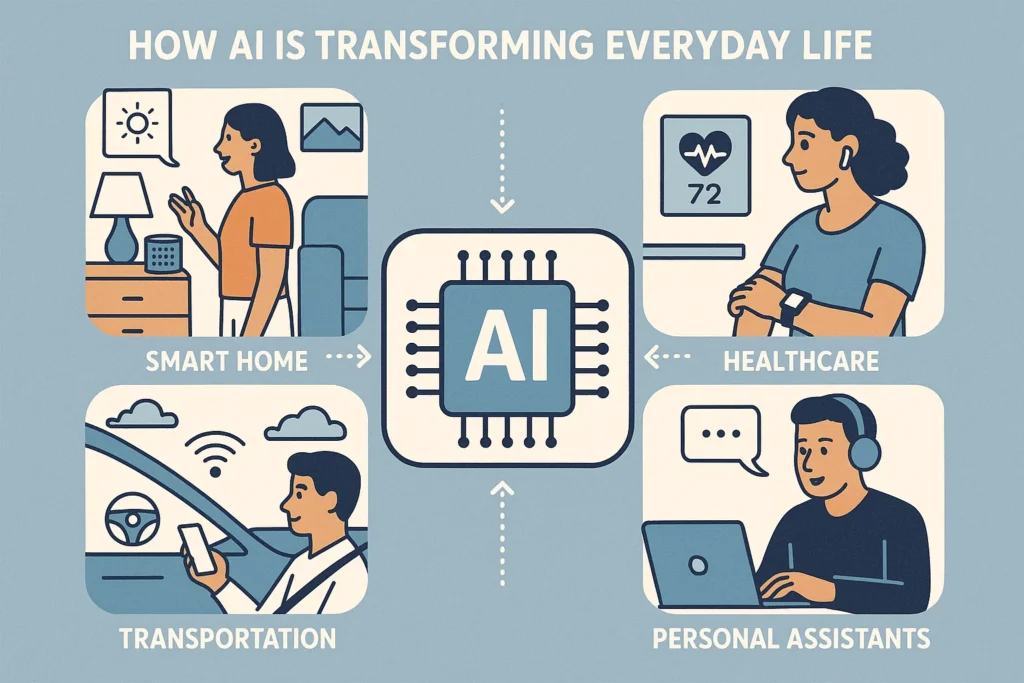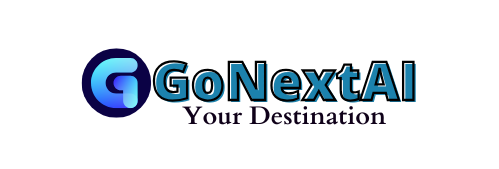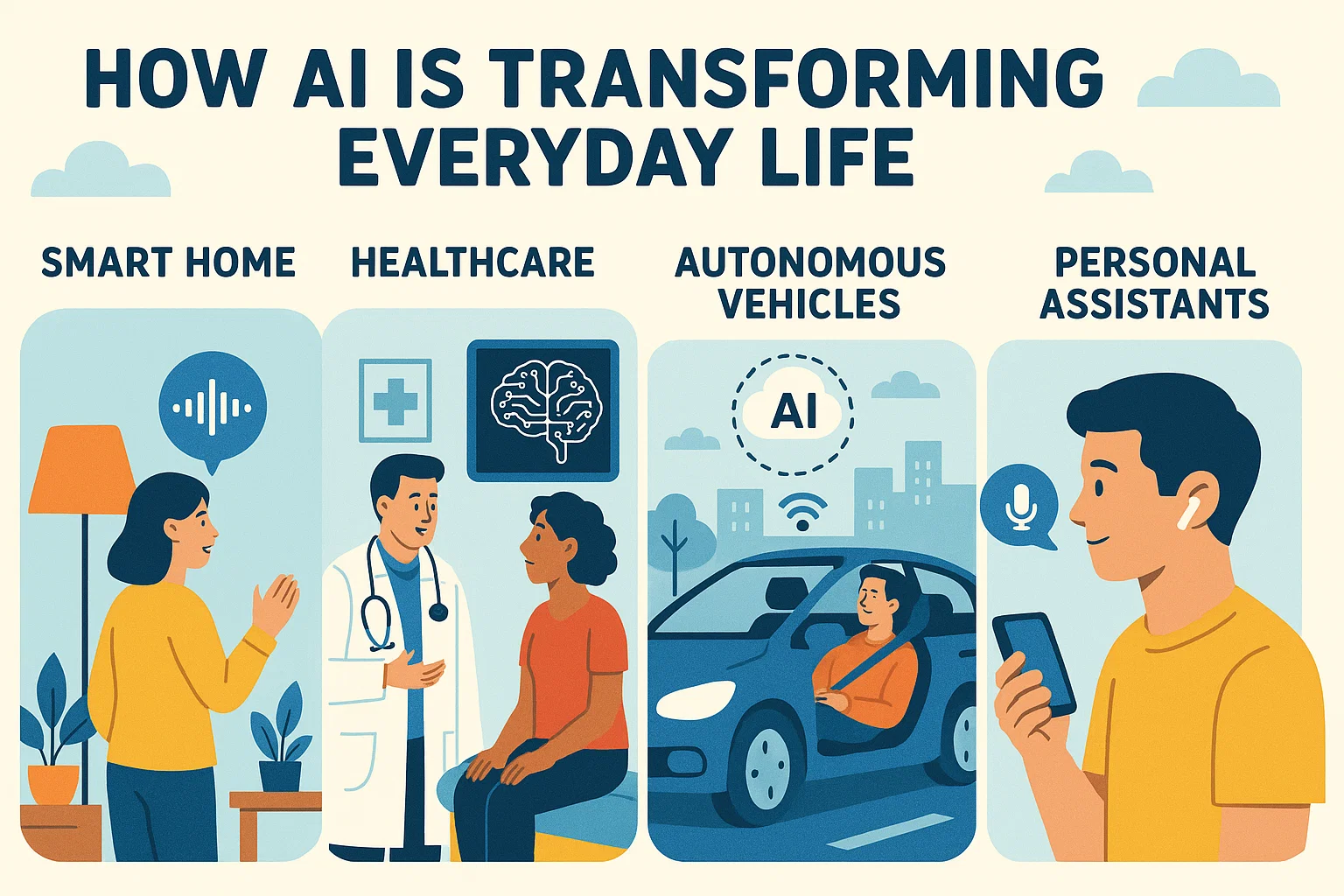How AI Is Transforming Everyday Life
Artificial Intelligence (AI) is no longer a futuristic concept confined to science fiction. It has quietly and rapidly become an integral part of our daily lives, reshaping how we work, communicate, shop, travel, and even relax. From voice assistants and personalized recommendations to smart home devices and healthcare diagnostics, AI is making our lives more convenient, efficient, and interconnected. In this article, we will explore how AI is transforming everyday life across various domains, and what it means for individuals and society as a whole.
1. AI in Communication
AI has significantly changed the way we communicate. Natural Language Processing (NLP) and machine learning algorithms power tools like chatbots, voice assistants, and real-time translation apps.
- Voice Assistants: Devices like Amazon Alexa, Google Assistant, and Apple Siri help users send messages, set reminders, play music, and even control smart home appliances through voice commands.
- Real-Time Translation: Apps like Google Translate and Microsoft Translator use AI to break language barriers, enabling real-time, accurate communication across different languages.
- Smart Typing and Email Suggestions: AI-driven tools such as Gmail’s Smart Compose or predictive text in smartphones help users write faster and more accurately.
2. AI in Transportation and Navigation
AI technologies are revolutionizing how we navigate the world around us. GPS systems, ride-sharing apps, and autonomous vehicles are just a few examples.
- Navigation Systems: Google Maps and Waze use AI to provide real-time traffic updates, optimize routes, and predict travel times.
- Ride-Hailing Services: Companies like Uber and Lyft use AI to match riders with drivers, calculate fares, and predict demand in specific locations.
- Autonomous Vehicles: Self-driving cars use AI, sensors, and computer vision to detect obstacles, make decisions, and drive safely without human input.
3. AI in Shopping and Retail
AI is transforming the retail landscape by making shopping more personalized and efficient.
- Personalized Recommendations: E-commerce platforms like Amazon and Netflix use AI to analyze user behavior and suggest products or content tailored to individual preferences.
- Virtual Try-Ons: AI-powered apps allow users to see how clothes, makeup, or furniture will look before making a purchase.
- Inventory Management: Retailers use AI to forecast demand, manage stock levels, and streamline supply chains.
4. AI in Healthcare
AI is bringing groundbreaking changes to healthcare, improving diagnostics, treatment planning, and patient care.
- Medical Imaging: AI algorithms can analyze X-rays, MRIs, and CT scans with remarkable accuracy, helping doctors detect diseases like cancer at early stages.
- Virtual Health Assistants: Apps like Ada and Babylon provide health information, symptom checkers, and even video consultations with doctors.
- Predictive Analytics: AI can predict patient risks and outcomes by analyzing large datasets, enabling early interventions and better resource allocation.
5. AI in Education
The education sector is leveraging AI to create personalized learning experiences and streamline administrative tasks.
- Smart Tutoring Systems: Platforms like Carnegie Learning and Squirrel AI adapt to each student’s learning pace and style.
- Automated Grading: AI tools can grade assignments and exams quickly, giving teachers more time to focus on teaching.
- Virtual Classrooms: AI supports remote learning through intelligent video platforms that enhance student engagement and participation.
6. AI in Entertainment
From content creation to consumption, AI is reshaping the entertainment industry.
- Streaming Services: Netflix, YouTube, and Spotify use AI to recommend shows, videos, and music based on user preferences.
- Gaming: AI enhances game design by creating realistic environments and responsive NPCs (non-playable characters).
- Content Generation: AI tools like ChatGPT and DALL•E can write stories, generate music, and even create visual art.
7. AI in Finance
Financial services are being transformed by AI in areas such as banking, investment, and fraud detection.
- Smart Banking: AI chatbots and virtual assistants help users manage accounts, pay bills, and receive financial advice.
- Investment Algorithms: Robo-advisors use AI to create customized investment portfolios based on individual goals and risk tolerance.
- Fraud Detection: AI monitors transactions in real time to identify suspicious activity and prevent fraud.

8. AI in Smart Homes
Home automation is one of the most tangible ways AI is entering everyday life.
- Smart Appliances: Refrigerators, washing machines, and thermostats now learn user preferences and optimize performance.
- Home Security: AI-enabled cameras and sensors can recognize faces, detect unusual activity, and send real-time alerts.
- Energy Management: Smart meters and AI algorithms help reduce energy consumption and costs.
9. AI in Employment and the Workplace
AI is reshaping the modern workplace by automating repetitive tasks and enabling new forms of collaboration.
- Recruitment Tools: AI can screen resumes, schedule interviews, and even conduct preliminary interviews.
- Productivity Tools: AI assists with scheduling, email management, and workflow optimization.
- Remote Work Support: AI tools support virtual collaboration through transcription services, smart video conferencing, and project management platforms.
10. AI in Daily Decision-Making
AI is subtly influencing our everyday choices, often without us even realizing it.
- News Feeds and Social Media: Algorithms determine what content we see, shaping opinions and preferences.
- Weather Forecasting: AI-powered models provide highly accurate forecasts, helping people plan their days.
- Digital Assistants: Tools like Google Assistant help manage to-do lists, reminders, and schedules.
Benefits of AI in Daily Life
- Increased Efficiency: Tasks are completed faster and with fewer errors.
- Enhanced Personalization: Experiences are tailored to individual needs and preferences.
- Improved Accessibility: AI tools aid people with disabilities, making digital spaces more inclusive.
- Better Decision-Making: AI provides data-driven insights that help in making informed choices.
Challenges and Concerns
While the benefits of AI are undeniable, it also raises important ethical and practical questions:
- Privacy: AI systems collect and analyze massive amounts of personal data.
- Bias and Fairness: Algorithms can perpetuate societal biases if not carefully monitored.
- Job Displacement: Automation threatens some traditional jobs, requiring upskilling and reskilling.
- Dependence: Over-reliance on AI may reduce critical thinking and decision-making skills.
Artificial Intelligence is revolutionizing every facet of daily life, making our interactions, tasks, and experiences smarter and more seamless. From the way we communicate and learn to how we shop, travel, and access healthcare, AI is driving unprecedented change. However, to harness its full potential, it is crucial to address the ethical challenges and ensure AI is developed and used responsibly. The transformation has only just begun, and as AI continues to evolve, so too will the way we live, work, and interact with the world around us.
By understanding and embracing AI thoughtfully, we can build a future where technology enhances human potential and enriches everyday life for all.
Read More Future Of Ai In Gaming
See More Passive income with AI

